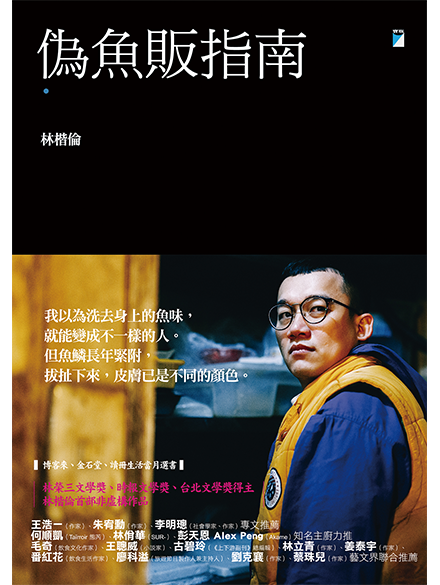To help pay off his father’s debts, he joined the family business he had always hoped to escape: hawking seafood in a public market. 20 years later, Lin Kai-Lun has written this wryly-observed memoir, smuggling his surprising literary sensibilities into the fishy package of a workplace exposé.
His father and grandfather had always told him not to follow in their footsteps, but when his father’s debts began to soar, Lin Kai-Lun gave up his personal dreams and joined the family business: hawking seafood in a public market. Manning the family stall and making deliveries to restaurants by day, Lin put pen to paper by night, resulting in a wry and rueful memoir.
Early on Lin learns to kill and clean a fish, and how to overcome his aversion to blood and muck. Sometimes, it seems that fish are all he thinks about day in and day out. Slowly, however, he realizes he is learning as much about the people at the market as he is about the family profession. There’s the stuttering delivery man who suffers no end of abuse in life, but always greets Lin with a sincere smile. The octogenarian widower who still makes regular purchases of red seabream because it was his deceased wife’s favorite. Eventually, Lin gives in to the basic fishiness of his existence. He finds that the best way to assess someone’s personality is to question them on their seafood consumption habits. When relating his family history, seafood metaphors are often the most apt.
Whether dissecting his complex relationship with his father, or describing the nitty-gritty of the seafood trade, Lin’s writing delivers unexpected touches of grace. Through the stink and the slime, Lin has managed to distill 20 years of experience hawking seafood into a smartly-observed memoir, smuggling his surprising literary sensibilities into the package of a workplace exposé.
